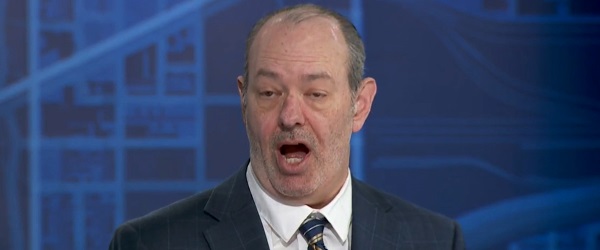
Captain Ahab: Robert Herguth of the Chicago Sun-Times
It's a simple fact we have stated numerous times before, but it bears repeating: The Catholic Church is the only institution on the planet where if you are an employee merely accused of some wrongdoing from decades ago, your name may end up on a public web site somewhere for the entire world to see forever as if you were an adjudicated child molester.
Think about that.
Now, thankfully, the Church is finally starting to awaken to the unfairness of this obviously unjust practice. In a letter (pdf) last September – which we also reported about earlier this year here – the Vatican determined that the publication of the names of priests merely accused of misconduct contradicts Canon Law and is unjust. The letter stated:
"[H]aving as an indispensable legal basis the statement of the Supreme Pontiff Francis according to which 'it is necessary to avoid the publication of the lists of the accused, even by the Dioceses, before the preliminary investigation and the definitive conviction,' the answer can only be negative with respect to the disclosure of hidden information concerning anyone, even more so when it concerns deceased persons."
But this seemingly common-sense decision by the Vatican did not sit well with Chicago Sun-Times investigative reporter Robert Herguth. Herguth's investigative beat in Chicago seems to be limited to ripping the Church over the issue of sex abuse by priests from many decades ago. While the media's interest in the abuse narrative has generally waned over the years as the story line has aged, the issue remains Herguth's white whale as he struggles to find new ways to criticize the Church over marginal or arcane practices related to the issue.
So, not surprisingly, Captain Ahab criticizes this new Vatican policy and writes in a recent story that not defaming merely accused priests on public web sites might be a sign that the Catholic Church may be headed "into a new era of secrecy."
Yet Herguth might want to give a moment of thought to the fact that taxpayer-funded Chicago Public Schools (CPS) – right in Herguth's own backyard – has openly admitted that it once logged a whopping 470 allegations of sexual misconduct by CPS employees just in the 2022 school year alone. And unlike with the Catholic Church, which involve allegations from decades ago, the potential crimes at CPS are happening today, as in right now.
And, most importantly, CPS has not even given thought of publishing any list of its merely accused employees. Why? Because to do so would be unjust to the merely accused, and CPS would immediately face a flurry of defamation lawsuits.
The hypocrisy in what is considered "news" at the Sun-Times and by Captain Ahab could not be any more obvious. But don't hold your breath that they come to this realization any time soon.
————————————
Want to learn about the rampancy of false accusations against priests?:
- "The Great Shakedown Keeps A-Rollin': Phony Claims Continue at Epic Pace, Here Are The Facts" (January 2024)
- The Greatest Fraud Never Told: False Accusations, Phony Grand Jury Reports, and the Assault on the Catholic Church (Amazon.com)
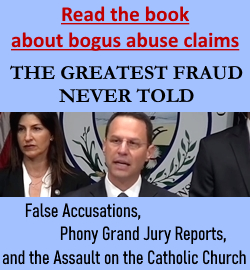

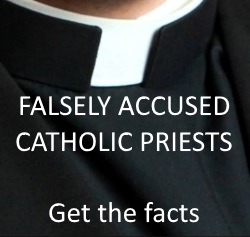
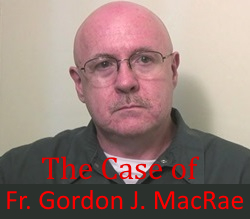
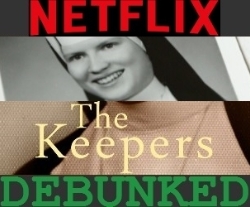
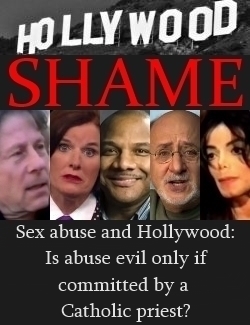
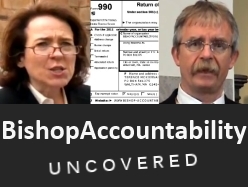
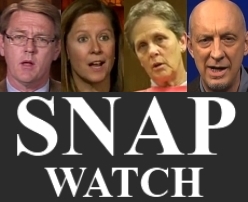
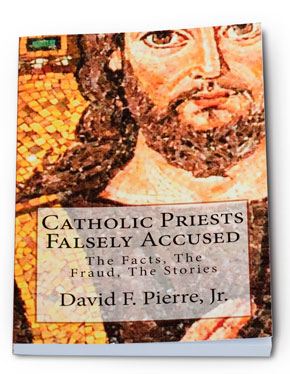
I would say this cries to heaven for vengeance. I hope their sheep support them. A friend contacted one local priest immediately to offer $support. I pray for these priests daily. God help us.
In my view, the following paragraph highlights Mr. Herguth’s bias:
“That ecclesiastical jurisdiction is among the first in the United States to point to the Vatican opinion as justification for not creating what’s essentially a sex offender registry for accused child molesters in the church.”
This entire article seems to blur the line—perhaps deliberately—between being credibly accused and being found guilty. The author uses these terms almost interchangeably, creating the impression that anyone listed by a Diocese is automatically guilty.
In reality, under the law, only individuals who have been convicted of certain sex crimes are required to register as sex offenders with local law enforcement agencies (see: https://www.meganslaw.ca.gov/AboutSexOffenders/SummaryOfCALaws and others). That means a person’s name is only added to the public sex offender registry after a legal conviction for specific offenses.
I believe more Dioceses should reconsider making their lists public. Instead, they should promptly share names—whether the accused is alive or deceased—with the appropriate law enforcement authorities, allowing proper investigation and action to protect the community. Only after a thorough investigation and a legal conviction should those names be publicly disclosed.
Just my two cents.
LLC, Why don't we have a discussion regarding the 15 dioceses like San Francisco who refuse to put out a full list of priests accused of child molesting. KQED article ''Advocates deliver a list more than 300 allegedly abusive priests to S.F. Archbishop.'' How dare anyone in this forum try to deceive and minimalize the numbers of priests that are guilty as child abusers. Why is it so systemic? Shame on your church! servant of the Almighty
Good morning brother Dan,
Since you’re asking a direct question, let’s have an open conversation.
The list mentioned in the KQED article (which is from 2022, by the way) includes people connected to allegations that go back decades—many of whom are now deceased. I looked into the first ten names on that list. Out of those, only two—Fr. Henry F. Angelino (who died in 1986) and Fr. James W. Aylward (long retired)—actually admitted to misconduct, according to the Bishop Accountability website. That’s about 20%. If that ratio holds, the list would drop to around 62 confirmed names across 80+ years. Still 62 too many—there’s no excuse. The Church absolutely should have acted sooner to prevent further harm.
That said, and as I mentioned earlier, I don’t believe dioceses should be publicly releasing lists of accused priests (credibly or not). Under U.S. law, people are presumed innocent until proven guilty beyond a reasonable doubt.
From what I understand, diocesan policy is to report allegations to law enforcement. Now, I know your response is usually: “But I don’t trust the dioceses.” And honestly, that’s your call. But trust or not, the legal process still matters. If you have real evidence that specific cases weren’t reported, then bring it forward or report it. Otherwise, let’s keep the focus on the topic at hand.
In my view, names should only be made public after someone has been found guilty in court. At that point, they’d be added to the sex offender registry, and the Church would be completely justified in naming them. Should that kind of public release be required by law? That’s a fair question and worth discussing—but only after guilt has been proven.
As for the Vatican’s stance (also according to universal principles): it basically says that, to protect reputations, the names of people who’ve only been accused—whether the accusation is credible or not—should not be made public unless there's a risk to public safety. In the case of someone who has passed away, they’re no longer a danger, and they also can’t defend themselves. So, based on that logic, naming deceased individuals isn’t necessary.
What do you think? Personally, I’m still on the fence about that part.
Have a blessed day, brother.
Nice job again trying to minimalize and deny the truth of the extent of child molesting done by clergy. If some 317 were accused in one diocese alone, you can't manipulate the numbers as you've tried, because over half of the priests are blatant liars and deniers and many times have been caught later molesting other little boys. And as mentioned before, dead child molesters still did the damage to the victims and being dead doesn't equal innocence! Damage is already done. And even if your figures were correct, chopping it down to only 60, multiplied by all the diocese in the world and the numbers are staggering. Nice try, but once again, total failure. servant of the All Seeing God